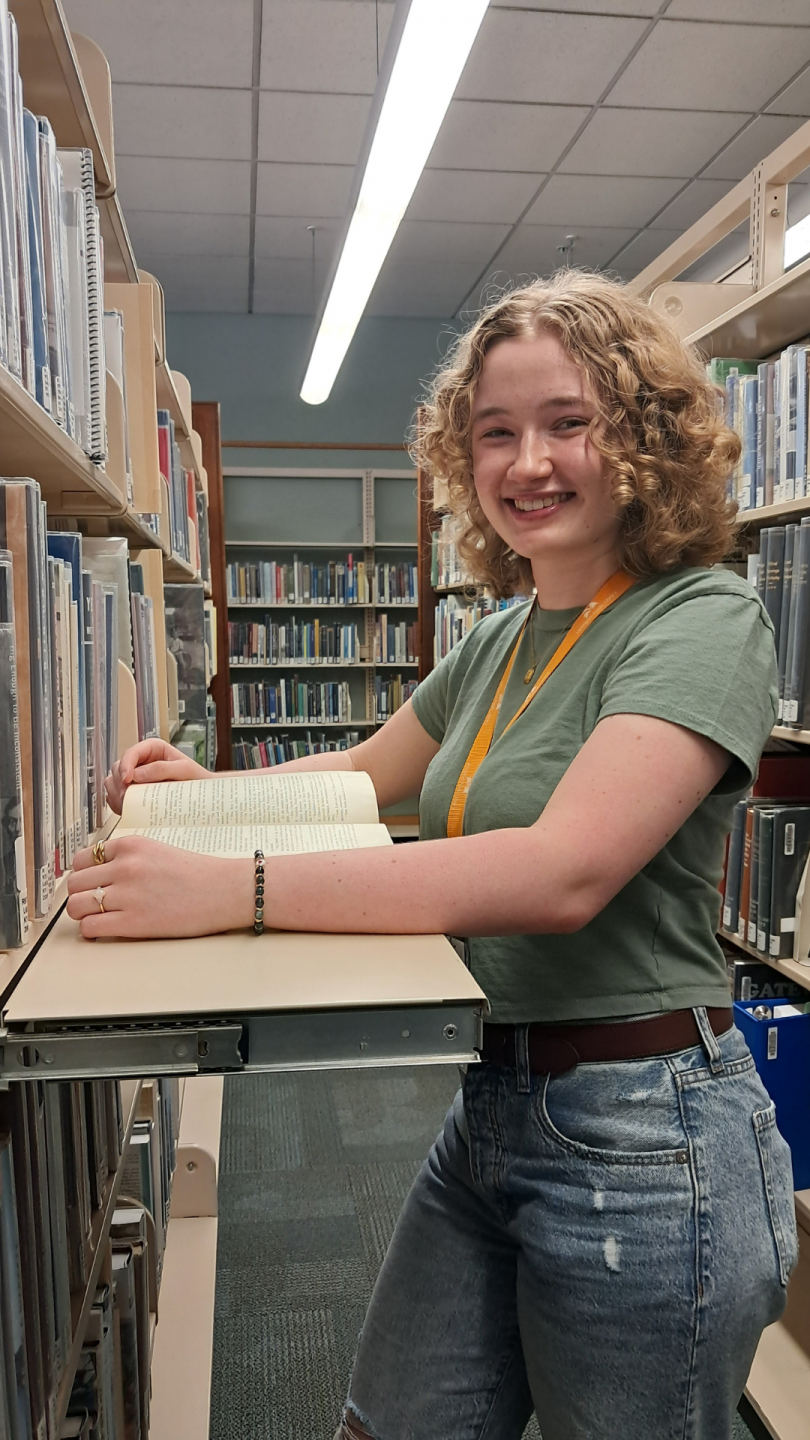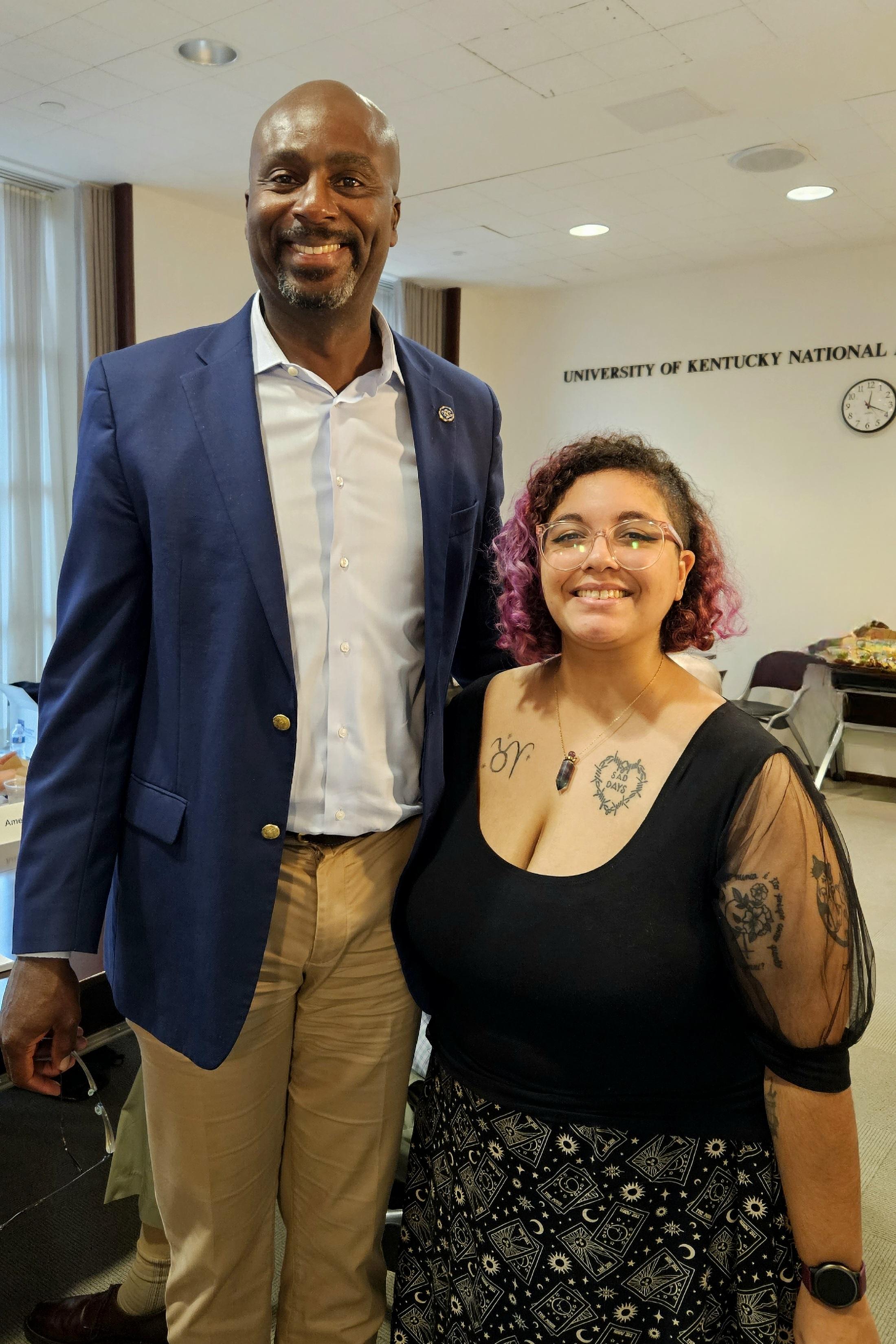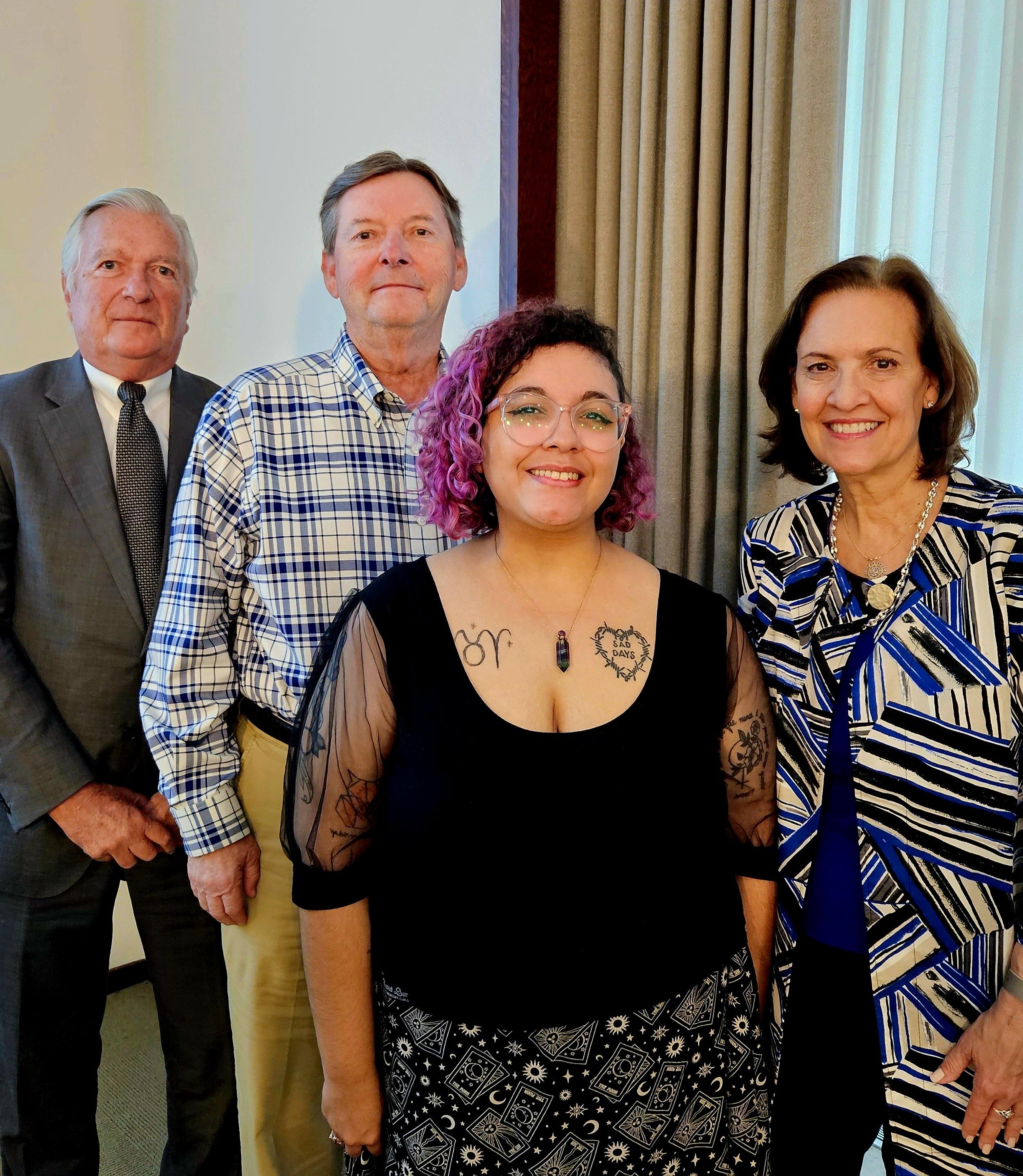 CIBS/Lexington Public Library-Kentucky Room Internship
CIBS/Lexington Public Library-Kentucky Room Internship
Student Intern Lilly Penney
Tell us about yourself!
I am a History and Anthropology major from Grand Rapids, Michigan, with minors in Spanish and Latin American, Carribean, and Latino Studies. I would have to say that my favorite class this semester is ANT: 328: The Ancient Maya.
What made you choose this internship?
I chose this internship because I wanted to know more about the historical African American community of Lexington. As an outsider to the city, I felt that the best way to do this would be to study its past through existing archival material--and the library has just that!
What has been your favorite part of the internship?
My favorite part of this internship is how it has impacted my view of modern-day Lexington. Because of how closely I've studied the people and places of interest in 1910 Lexington, I can point out former residences, churches, and businesses owned by African American Lexingtonians walking down today's streets. I feel as though I now have a deep understanding of Lexington's past and how it's changed throughout the years.
How has the internship influenced your future educational plans?
The internship has encouraged me to pursue graduate school and perhaps even a doctorate in the future. I've found I really love the process of researching and combing through archival sources, as well as contributing to the archival record. It has additionally deepened my interest in the study of the African diaspora in relation to the Transatlantic slave trade and the subsequent introduction of racial delineations by allowing me to study the aftermath of such history in a city I am familiar with. I believe that the study of marginalized communities and their experiences is crucial to an overall understanding of history today.
What are you working on at the library now?
At the moment, I am researching and planning a small library exhibit on Dr. Mary E. Britton, Kentucky's first licensed Black female physician and a prominent voice for African American peoples and women's civil rights in the late 19th- early 20th century! When I'm not doing that, I am continuing to work my through the Lexington Leader's March 1910 newspapers on the library's microfilm to clip and document articles about the African American community for uploading to the digital archive.
____________________________________________________________
CIBS Fellow Ariane Ribeiro Santana

Tell us about yourself!
I'm a 24-year-old History major born in Rio de Janeiro. I earned my degree at the Federal University of Espírito Santo (Vitória, Espírito Santo, Brazil) and am currently a second-year M.A. student. I had the opportunity to start researching as an undergraduate, and my focus was women and gender in the Beat Generation, a movement that is largely based in the United States. For that reason, I always knew I wanted to come to the U.S. for graduate school.
Why did you choose Black Studies?
Although Brazil holds one of the most racially mixed populations, and the debates by Brazilian scholars surrounding race and ethnicity are absolutely brilliant, my undergraduate curriculum did not include a lot of Black Studies. We did see how race and racism affected the history of Brazil, of course, especially through histories of slavery and resistance, but for the most part, the historiography in the curriculum was largely European and male. Much like the erasure of women in the Beat Generation led me to my undergraduate research, my questioning of where were Black people in the Beat Generation led me to my current research on Amiri Baraka (who was a Beat poet for a brief period).
Why did you choose UK?
UK's history department is one of the strongest in terms of African American and Africana Studies, which gave me the confidence to pursue this field I had had little training [in] until then. Black Studies, and Black Studies at UK specifically, have both been very fulfilling to me for a few reasons. Reading about struggles similar to my own but at the same time also about Black pride and the joys of being Black makes me feel more connected to Blackness. This is heightened by my being in a department with brilliant Black people as part of the faculty, something that is very inspiring to me. Black Studies also constantly challenges me to rethink antiracism strategies in the present, broadening my views on what it means to be Black in the US, in Latin America, and everywhere else.
What is your favorite course?
I don't think I have a favorite course overall, since I've taken so many classes that have picked my brain in very interesting ways, but the most eye-opening ones have been outside my comfort zone. Decolonizing Archaeology (ANT) and Amiri Baraka's Many Lives (ENG) have both been classes outside of the history department that I've had the opportunity to take and made me reconsider a lot of ideas. The first one made me reflect on Indigenous peoples and their role in history, as well as how archaeology and history work so closely together they run the risk of falling into very similar pitfalls of positivism that are based on white supremacy; the latter forced me to pay attention to the form of Baraka's writing, whereas history tends to hyperfocus on the content of it. They were both challenging in their own ways, but I wrapped them up feeling like I had broadened my horizons.
What are you working on now?
Currently, I'm working on my M.A thesis on Amiri Baraka, his trip to Cuba in 1960, and how seeing postrevolutionary Cuba helped radicalize him into becoming a Black Nationalist and, later, a Third World Marxist. It is very much transnational research that I, as a Black Latina, feel connected to. I am also looking into going on to the PhD next Fall, so hopefully I will have the opportunity to broaden the scope of my research then. Additionally, I am working on Dr. Nikki Brown's project Documenting Racial Violence in Kentucky by transforming the Chicago Tribune's annual lists of lynchings into spreadsheets for easier access by scholars and the public at large.

Photos
Top: Johnathon Davis with Ariane Ribeiro Santana
Bottom: Winn Williams, Kip Cornett, Ariane Ribeiro Santana, Jill Rappis

